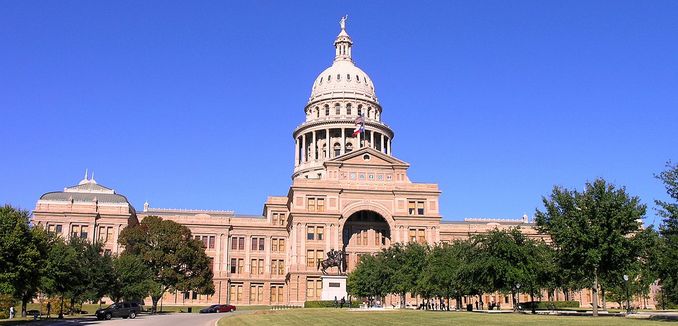The governors of all 50 U.S. states on Thursday released a statement strongly denouncing boycotts of Israel as “antithetical to our values and the values of our respective states.”
Governors United Against BDS, a group organized by the American Jewish Committee, pointed out that the Boycott, Divestment and Sanctions campaign seeks “to isolate Israel—a pluralistic nation with deep cultural, familial, security, educational, scientific and commercial bonds with our state and with the United States as a whole—rather than recognize the profound mutual benefits of our engagement with it.”
The BDS campaign, the governors asserted, “would also undermine peacemaking by suggesting that economic and political pressure on Israel can replace real negotiation.” While a diplomatic solution to the conflict between Israel and the Palestinians remains “painfully elusive,” the governors affirmed their support for two independent states, which should be “achieved through direct, bilateral negotiations.”
“Israel is a robust democracy with many rights and freedoms that do not exist in neighboring countries—or in much of the world,” the governors observed. The BDS campaign’s decision to exclusively attack Israel “while fundamental rights are trampled and atrocities are committed routinely not far beyond its borders,” they noted, “raises serious questions about its motivations and intentions.”
The governors closed by condemning the “virulent movement to promote anti-Israel boycotts … as incompatible with the values of our states and our country.” They also reaffirmed their support for Israel “as a vital U.S. ally, important economic partner and champion of freedom.”
Governors Dannel Malloy of Connecticut, Andrew Cuomo of New York, and Gregg Abbott of Texas are the co-chairs of the effort, which also includes Mayor Muriel Bowser of Washington D.C., who serves as the head of the capital’s executive branch.
Abbott signed an anti-BDS bill into law earlier this month, saying at the time that he was “proud” to do it in honor of Israel’s 69th Independence Day.
Other anti-BDS bills have become law in Michigan, Pennsylvania, Illinois, South Carolina, Arizona, Georgia, Colorado, Florida, Alabama, California, New Jersey, Ohio, Rhode Island, Arkansas, and Iowa. New York governor Andrew Cuomo approved a similar measure by executive order.
Advocates of these measures have emphasized that they do not raise any First Amendment issues, as private parties are still free to protest, boycott, or speak out against Israel in any way. However, states may be obligated to protect taxpayer money from being used to promote or support discrimination based on religion, race, or nationality.
The passage of anti-BDS legislation reflects an understanding that the campaign “is not like the civil rights protests, as its supporters love to claim, but rather more like the anti-Jewish boycotts so common in Europe in the 20th century, and in the Arab world until this day,” Northwestern University law professor Eugene Kontorovich wrote in The Washington Post in 2015.
German Chancellor Angela Merkel’s political party, the Christian Democratic Union, echoed this criticism in December, passing a resolution stating that the party “declares with this motion its disapproval and rejection of every form of BDS activity and condemns these activities as anti-Semitic.”
Many BDS leaders have publicly opposed the two-state solution and affirmed that the movement seeks Israel’s destruction. Omar Barghouti, the co-founder of the movement, said in 2014 that Palestinians have a right to “resistance by any means, including armed resistance.” Leading activist As’ad Abu Khalil wrote in 2012 that “Justice and freedom for the Palestinians are incompatible with the existence of the state of Israel.”
[Photo: Daniel Mayer / WikiCommons ]




